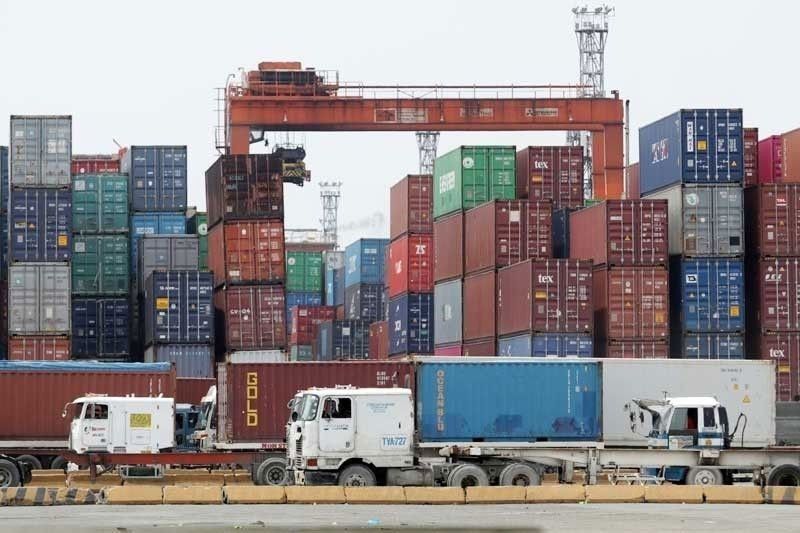‘Shrinking imports a cause for worry’

MANILA, Philippines — A global think tank yesterday warned that the sustained drop in the country’s imports is shaping up as a big concern on total trade and would affect efforts toward economic recovery.
In its latest economic monitor, UK-based Pantheon Macroeconomics said while the contraction in Philippine exports can be considered temporary, the deteriorating import situation is more worrisome.
The country’s export sales slid 5.2 percent in January to $5.49 billion from $5.79 billion in the same period last year.
Imports, meanwhile, contracted for the 21st straight month in January at a faster pace of 14.9 percent, bringing the total import value to $7.9 billion.
“The real disappointment in the Philippines’ trade data lies on the other side of the balance, with imports still falling year-over-year at double-digit rates,” Pantheon Macroeconomics senior Asia economist Miguel Chanco said.
“The weakness is broad-based, as shipments of capital and consumer goods continue to stagnate, they stand at roughly 18 percent and eight percent below their pre-COVID levels, respectively, on our adjustment,” he said.
Economists said the continued slump in imports suggests that growth pains for the Philippines would be around for some time, with the sustained drop in capital goods and raw materials suggesting that potential output is falling as well.
Huge decline in imports was noted in mineral fuels, lubricants, transport equipment, industrial machinery, iron and steel, food and live animals, and plastics in primary and non-primary forms.
Heavy machinery for construction, commercial aircraft and road vehicles have all fallen sharply, which would dent capital formation and cap any recovery effort for the economy still struggling in recession.
“Crucially, the rapid escalation of the second virus wave looks set to delay the economy’s further reopening to the third quarter. Mobility in the archipelago remains one of the most constrained in ASEAN,” Chanco said.
While exports had a poor start this year, Pantheon Macroeconomics said this is just a temporary glitch.
Chanco noted that rising commodity prices mean little to export earnings, as manufactured products dominate the country’s export mix, accounting for over 80 percent of the total.
“Nonetheless, the unbroken recovery in Korean exports—a reliable coincident indicator for Philippine shipments and a leading indicator for global trade—suggests that January’s weakness should be a mere blip,” he said.
Further, remittances are still in no position to aid the recovery in domestic demand after it deteriorated by 1.7 percent in January.
Chanco explained that the peso’s appreciation year-over-year implies that households continue to receive much less bang for each buck even if base effects have been challenging and growth is still modestly in the black if seasonal effects are stripped away.
“Monthly gains remain very subdued, partly because momentum in inflows from the US and key Middle Eastern states has dried up,” Chanco said.
“We maintain that a turn around from both areas is imminent, though, thanks to fiscal stimulus and reopenings in the US and the recovery in oil prices,” he said.
- Latest
- Trending




























